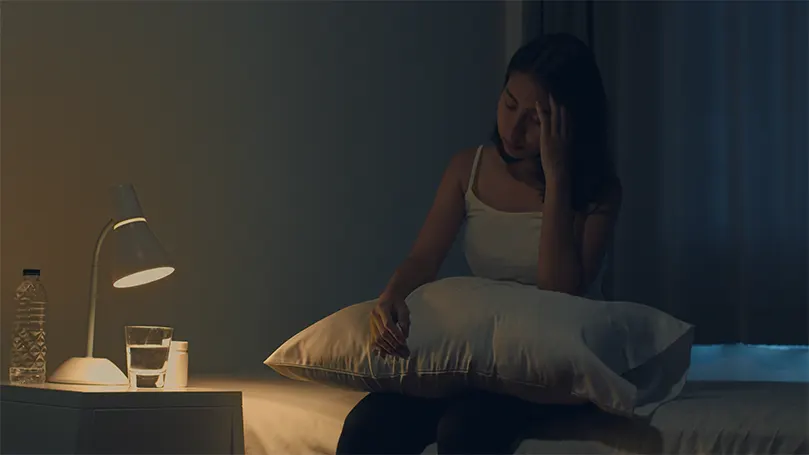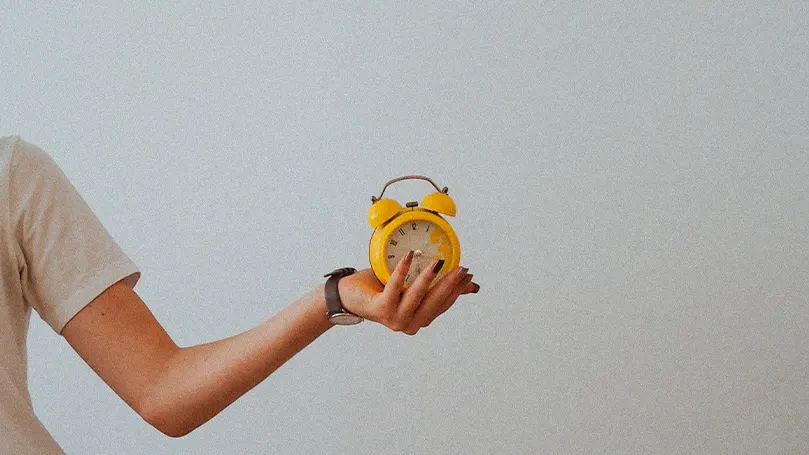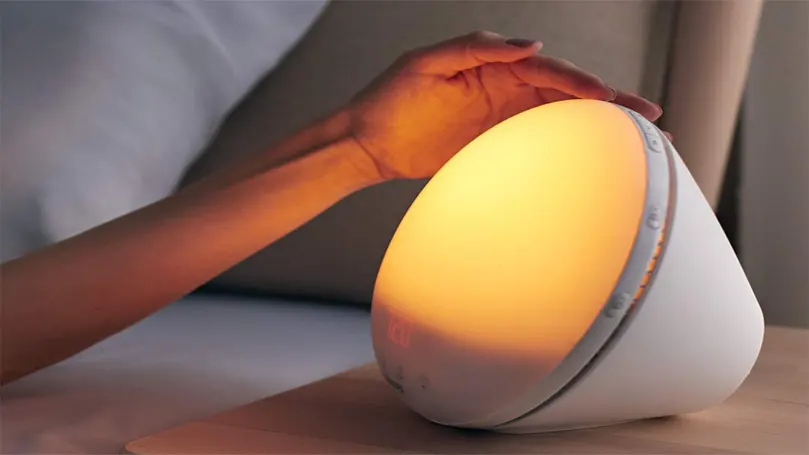Causes of winter fatigue
To understand how you beat Winter fatigue, we first have to understand exactly why it happens. On a social level, January and February can leave some people in a bitter mood as it's constantly cold and it's more difficult to go outside and have some fun. Not to mention that failing your New Year's resolution also usually hits around this time.
However, what's more important is how this winter depression hits us on a physical level. After all, getting all your ducks in a row is a bit more difficult when you're also fighting the chemical changes in your own body. And it's all due to the lack of sunlight. So, here's what's happening.
Lack of melatonin

Melatonin is a very important hormone in your body that regulates your energy levels. Or in other words, it decides when it's time to go to sleep and when you should be full of energy and ready to take on the day.
However, melatonin secretion is tightly tied to exposure to natural sunlight. And since the winter months are notoriously dark, you can often get a lot less sunlight than your body needs. This in turn makes you feel sleepy throughout the day, making you less motivated.
So, you can see how even just this, a drop in melatonin level, can make you have the winter blues. But unfortunately, we're not even done yet.
Lack of vitamin D

Just like melatonin, vitamin D is only produced as a reaction to natural sunlight. And as luck would have it, a vitamin D deficiency can lead to most of the annoying SAD symptoms. So, just like melatonin, not getting enough vitamin D can make you feel sleepy and listless.
And that's not all. Vitamin D also affects your bone health, immune function and even how quickly your muscles recover after exertion. So, getting enough vitamin D is even more important if you're an athlete.
A messed-up circadian rhythm

Lastly, we'd like to talk about how a lack of sunlight affects your circadian rhythm. To oversimplify, it's like your biological clock that lets your body know when you need energy and when you should relax and drift off.
The issue arises from the fact that your circadian rhythm largely depends on sunlight. So, if you wake up late in the day and only see darkness when you open your eyes, your biological clock might determine that you don't need energy as it's no longer daytime.
This can then in turn mess up your sleeping patterns and lead to some restless nights. So, you can see why Seasonal Affective Disorder (sad) leaves so many people rather grumpy throughout the winter.
Recognising winter fatigue symptoms

There's no doubt that Winter fatigue (or SAD) can make winter rather tough. You might even feel a sense of relief now that you know what's been causing your terrible mood lately. However, it's important to determine whether what you're feeling is seasonal depression or something more serious.
We will give you some general guidelines to determine whether it's winter fatigue, but we strongly suggest you see a professional if there's even the slightest chance that it might be a more serious sleep or health disorder.
Take note of the timing
It's important to note that we refer to it as Winter fatigue because that's when it's the most common. However, it can affect some people in the summer months as well, so that shouldn't be the determining factor.
What is consistent though is that it passes after a few months. So, if you've been feeling sluggish and unmotivated for over half a year, it might be something more serious. And if it's a constant, it might even be something like chronic fatigue syndrome – in which case you ought to see a professional.
Facture in any notable life events
On a similar note to the previous tip, think about whether something else in your life is draining all your energy. After all, many people start high school, university, or even their first job during autumn – so this might just be your body getting used to the new environment or your new schedule.
On the other hand, it could also be caused by a new relationship that you're not completely happy with. Of course, we're not encouraging you to blame everyone around you, but it's good to take a look at your surroundings and determine whether other factors are at play here.
Treatments for winter fatigue
While Winter fatigue isn't one of those issues that you can take a pill and be done with, there are still things that help. And while seeking guidance from a professional is always your best bet, here are some general guidelines we suggest you follow in order to deal with Winter fatigue.
Get more sunlight

As we've discussed, lack of sunlight is one of the main factors when it comes to Winter fatigue. And while the days are shorter, the sun does still come out – so use it!
If possible, try to go outside early in the morning. Even if it's cloudy, you'll still be getting the benefits of melatonin and vitamin D (although not as quickly). And if you have responsibilities that stop you from going out during the week, use the weekend to get as much natural sunlight as you can.
Just make sure to cover up nicely, as getting sunlight isn't worth it if you catch a fever while doing it. Especially since a fever also affects sleep, and thus your energy levels.
Use supplements

Vitamin D supplements are rather popular in most parts of the world, as they represent the easiest way to make up for your vitamin D deficiency. We suggest getting the D3 supplement in particular, as it's the closest to what your body needs.
Plus, you can pair it with a magnesium supplement to better the odds of your body coming out on top. This is because magnesium (aside from being generally useful) helps your body properly utilise vitamin D.
When it comes to melatonin supplements, they're a bit more tricky but might still be able to help. They generally help you fall asleep faster and more soundly, however they can have some minor side effects – so, do your research or consult your GP.
Try light therapy

Light therapy is all about getting a special device, called a light box, that emulates natural light and helps your body maintain its circadian rhythm.
Plus, it can potentially help lift your mood, as light boxes can reportedly help with depression as well. So, while we can't guarantee that a light box will change your life, the science seems to suggest that it can help out quite a bit.
Try Cognitive Behavioural Therapy

If you want to better your mood but a bright light box seems too fishy for you – take it old school. Cognitive behavioural therapy relies solely on talking and is a great alternative for those who don't feel comfortable taking any medication.
It's primarily used to treat depression, so while it's not a complete answer for Winter fatigue, it can certainly help better your mood. So, while again we can't guarantee anything, ask around and pick the most suitable treatment programme for you.
The Impact of winter fatigue on mental health
As we've already mentioned, Winter fatigue affects your energy levels in a pretty significant way. You're likely going to be less motivated than during the summer months and since it also affects sleep, you'll likely wake up feeling rather groggy.
However, there's one more aspect that's worth mentioning when it comes to this seasonal pattern of depressive episodes. Namely, Winter fatigue can also affect a serotonin transporter called SERT.
Serotonin is a chemical in the brain that helps balance your mood. And a higher level of SERT tends to disrupt your serotonin levels and thus make you more likely to feel down. So, on top of already being tired, you can expect issues with your mood as well.
Diet tips to combat winter fatigue

Weight gain is a rather common side effect of Winter fatigue but you can use proper nutrition to fight back as well! For one, having a healthy diet makes it less likely that you'll gain weight, which can in turn make you feel better about yourself and lift your mood.
And on a more scientific level, lean proteins and omega threes can not only help you stabilise your mood but also give you a little boost in energy. Think turkey meat, salmon, walnuts, etc.
Plus, some berries might help lower the secretion of cortisol – the stress hormone.
So, eating the right food can directly affect your body and make the Winter fatigue symptoms feel less daunting.
Exercise to combat winter fatigue

In most conversations, diet and exercise are like two peas in a pod, and that's the case here as well. Besides just helping you keep off any extra weight you might not want, regular exercise can also help you better your mood and your energy levels.
After all, few things in life feel as rewarding as getting a good workout in! Plus, if you take your workouts outside, you can also get some extra sunlight and help your body fight against Winter fatigue.
And on top of all that, morning workouts can better your sleep patterns and thus make you less likely to feel tired throughout the day. However, be wary of working out too late in the day, as it can cause slight issues. If you want to know more about evening exercise, we have an article just for you!
Conclusion
Have you experienced any of these winter fatigue symptoms? Feel free to share your experience in the comments and make sure to consult your GP if you feel unwell, regardless of the season.
Spread the word
Recommended reading:
- Do You Actually Need The Heaviest Weighted Blanket?
- Preppy Bedroom Ideas For a Fun and Decorative Space















There are no comments yet
"*" indicates required fields